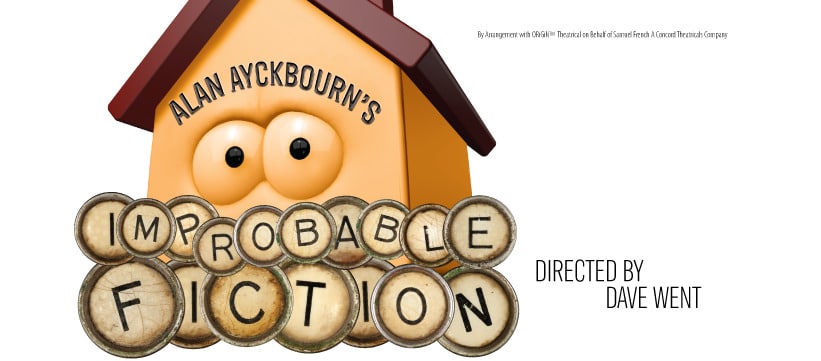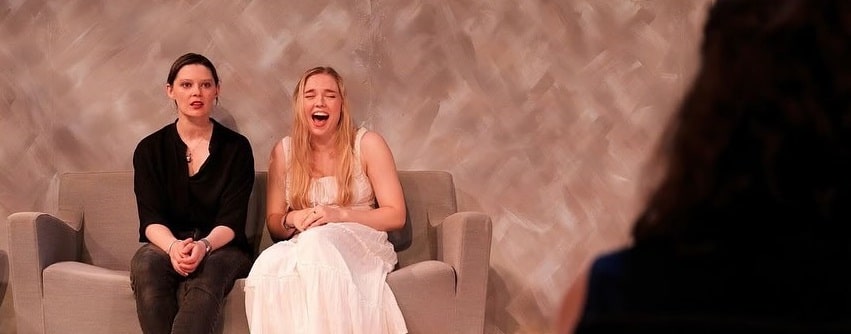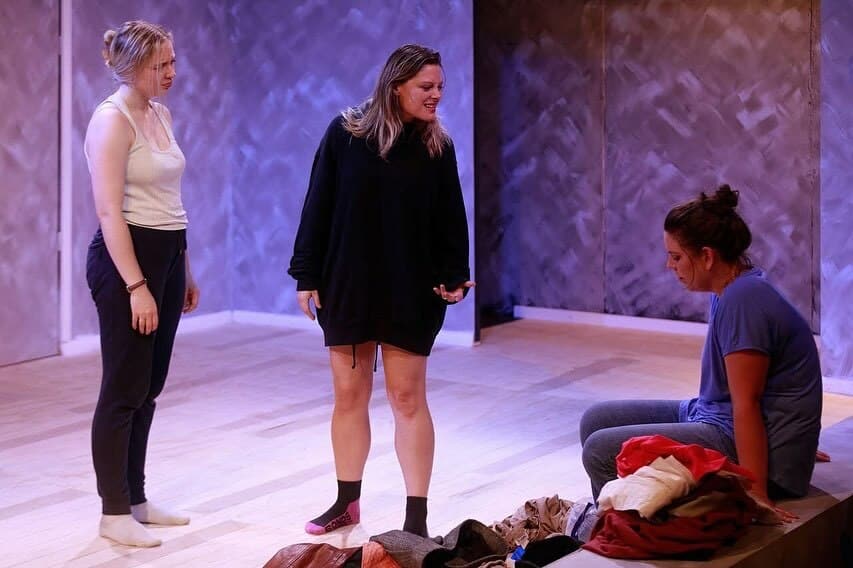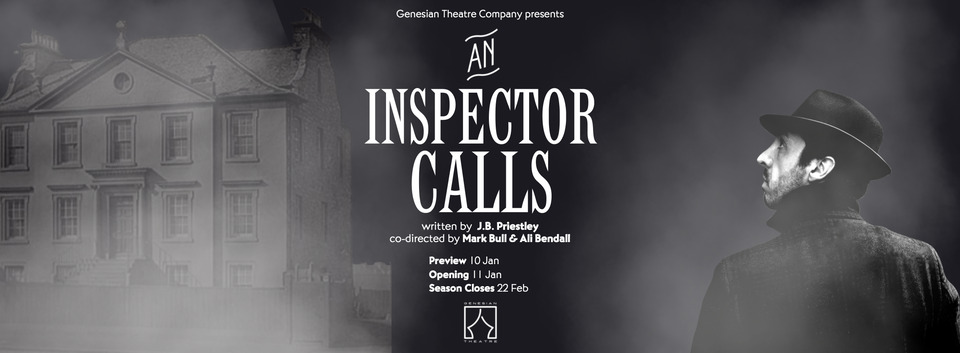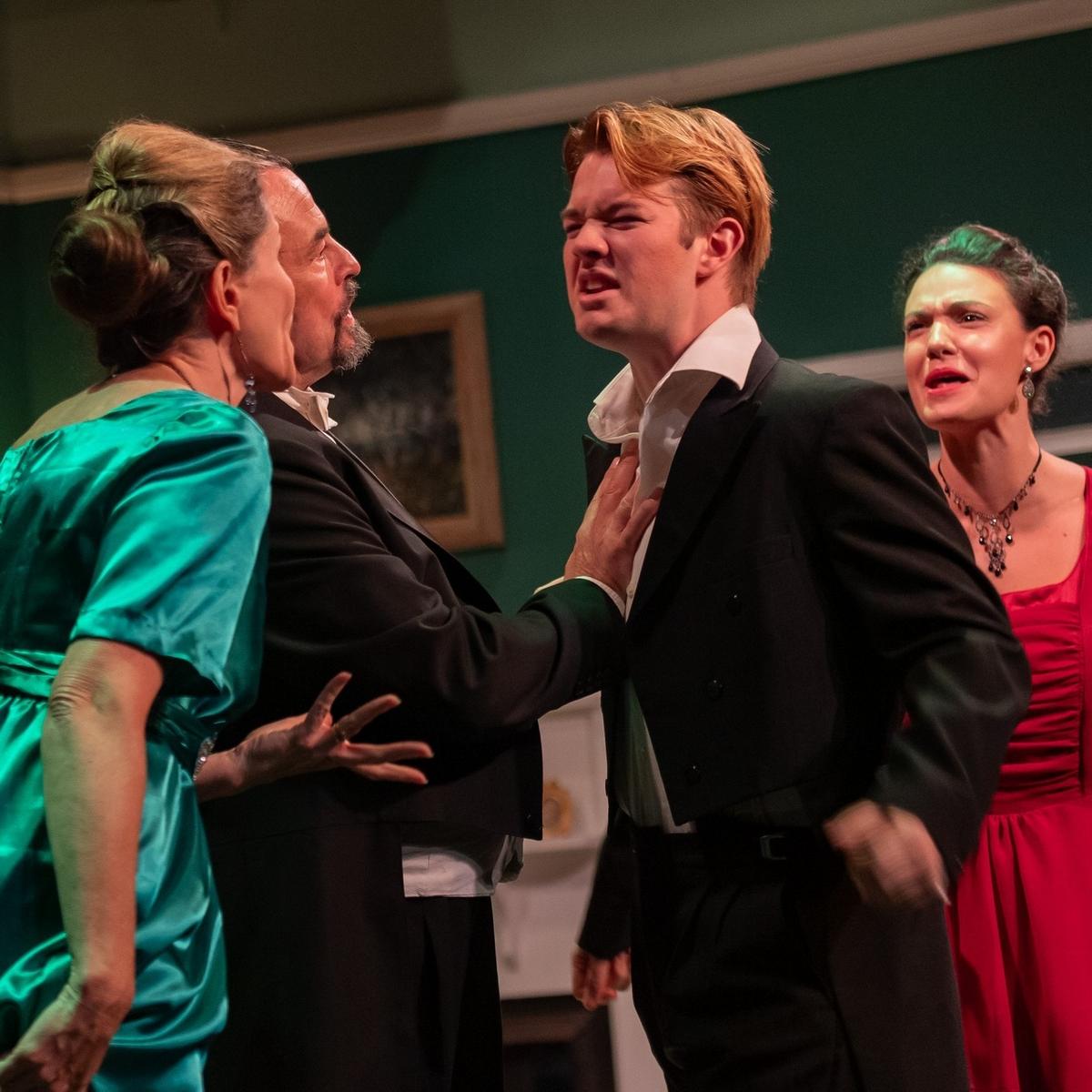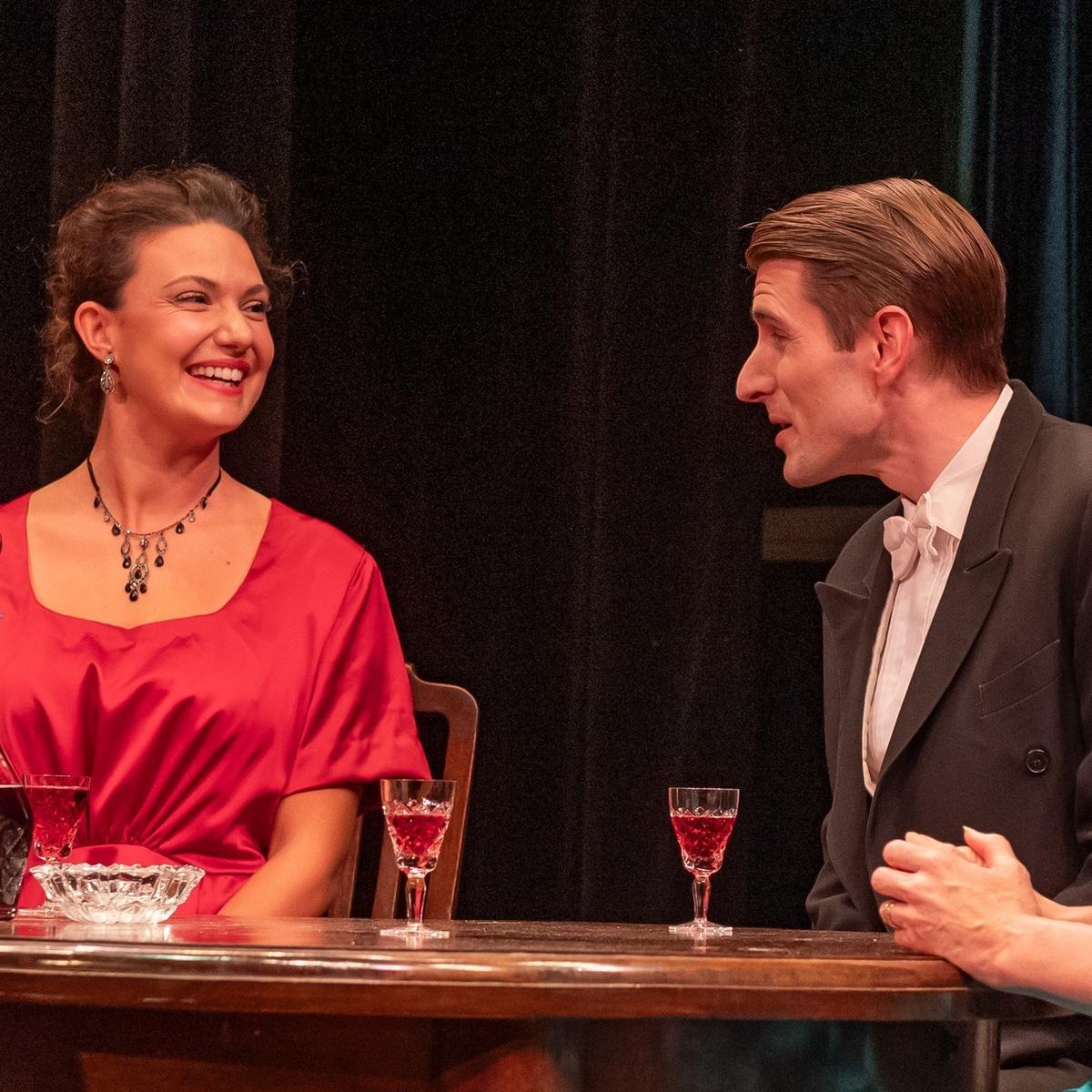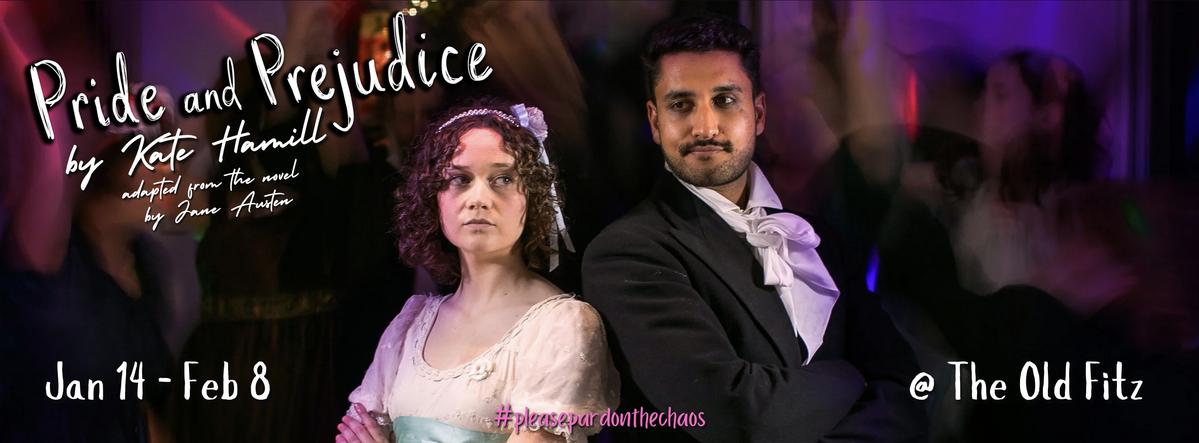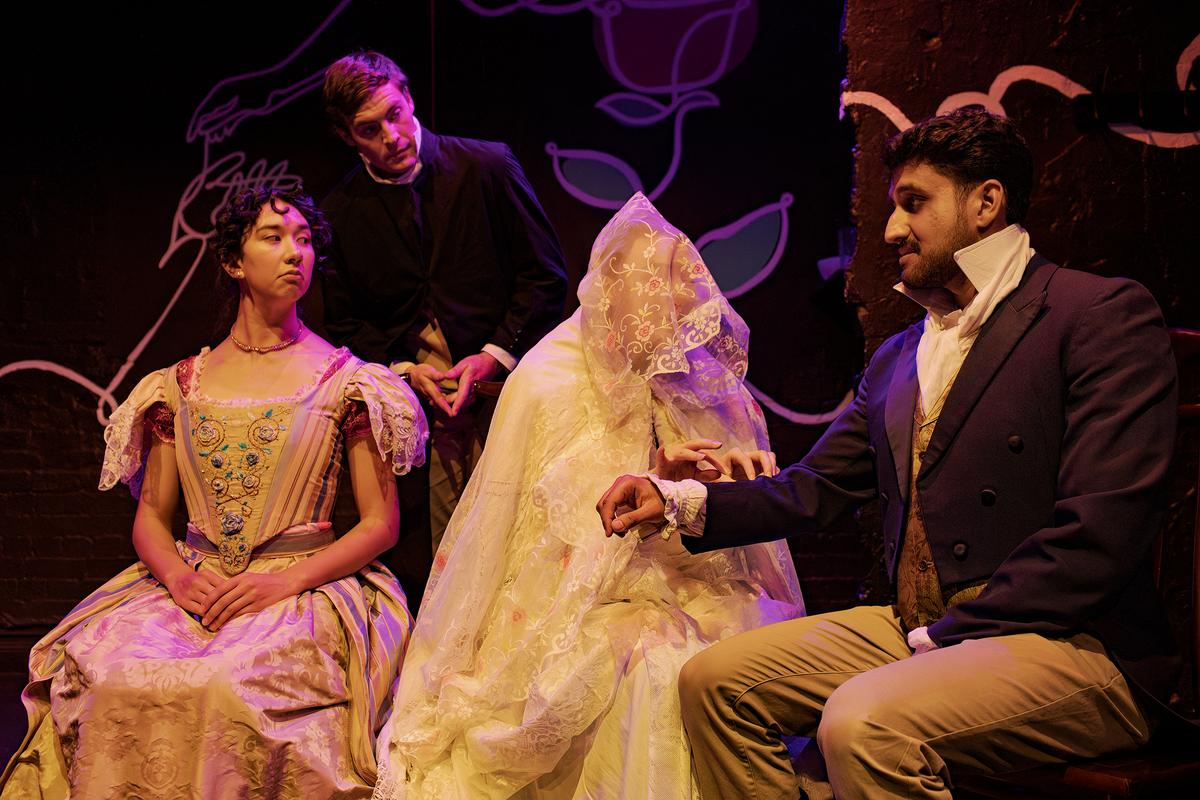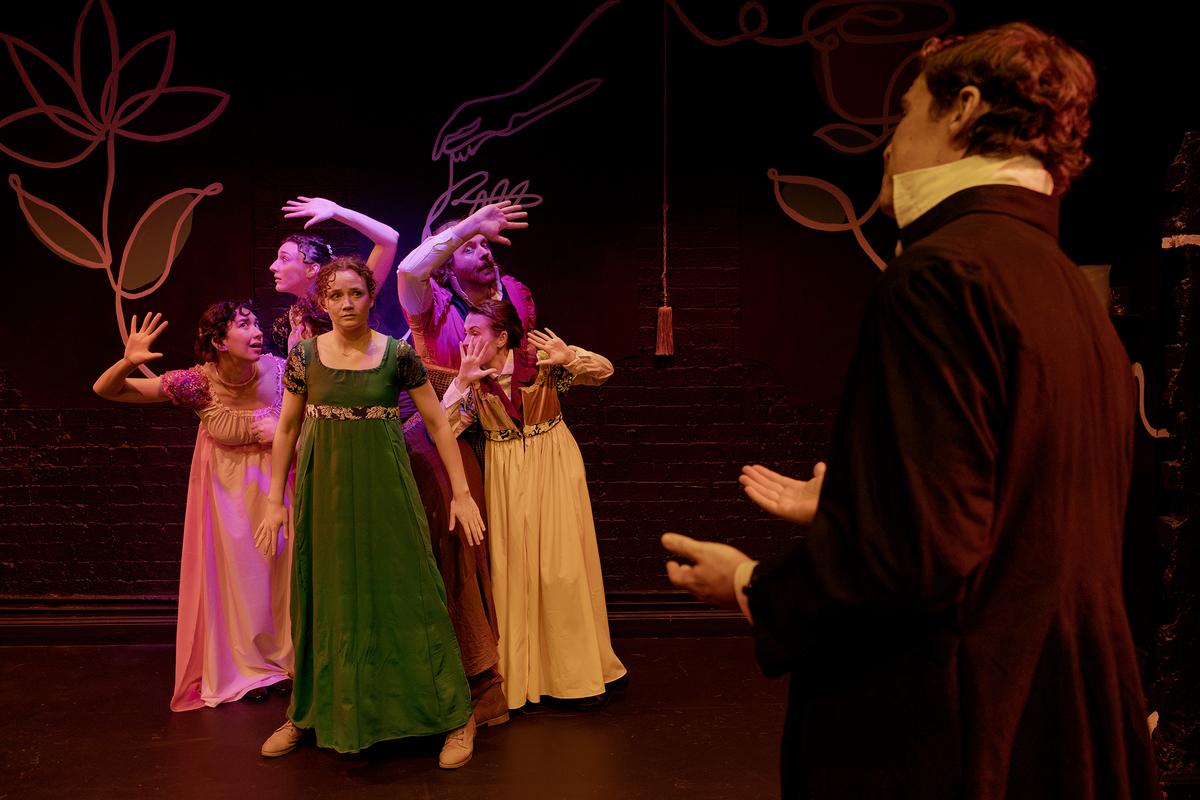There’s something specifically delightful about a farce with a lot of heart. Castle Hill Player’s production of Alan Ayckbourn’s ’Improbable Fiction’ has a charming ensemble cast, a Shakespearean change-maker of a storm, and several comic surprises that had the house in stitches.
Jem Rowe is warm and funny as our anchoring host Arnold Hassock. The characters he welcomes to the house he shares with his aging mother bemuse and enthral him (and the audience) in turn. This is a show for you if you’re interested in writing and the oddball folks who do it.
Abby Bishop’s set, in concert with Mark Dawson’s lighting design, is incredibly effective and is the key support for good actors working with a good script. They’ve created a little world that it was a delight to fall into for the night, and Alan Ayckbourn’s skill with words is shepherded effectively by director Dave Went.
Leone Sharp’s costume design is excellent, and the pace of some of the changes was very impressive. Each detail gave richness to the whirl of the second act. Some of the prop work drew gasps and cheers from the audience and facilitatedsome of the big surprises and delights across the show.
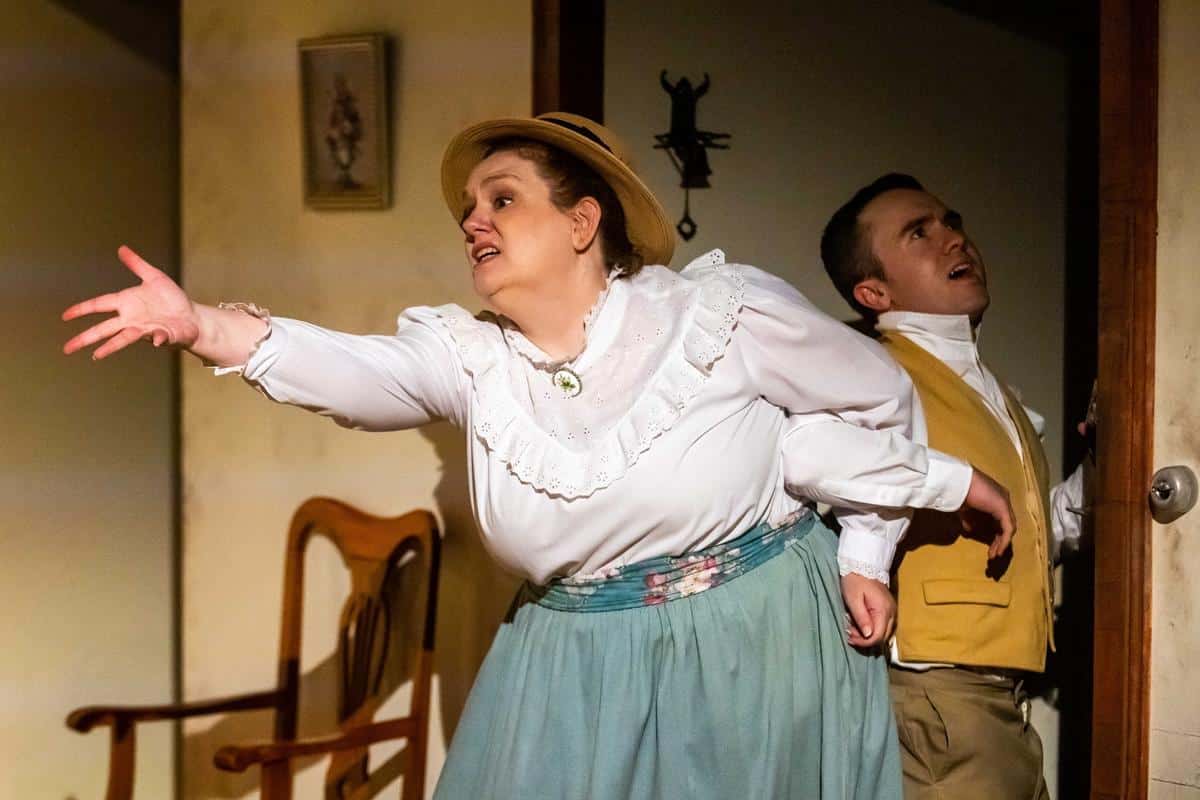
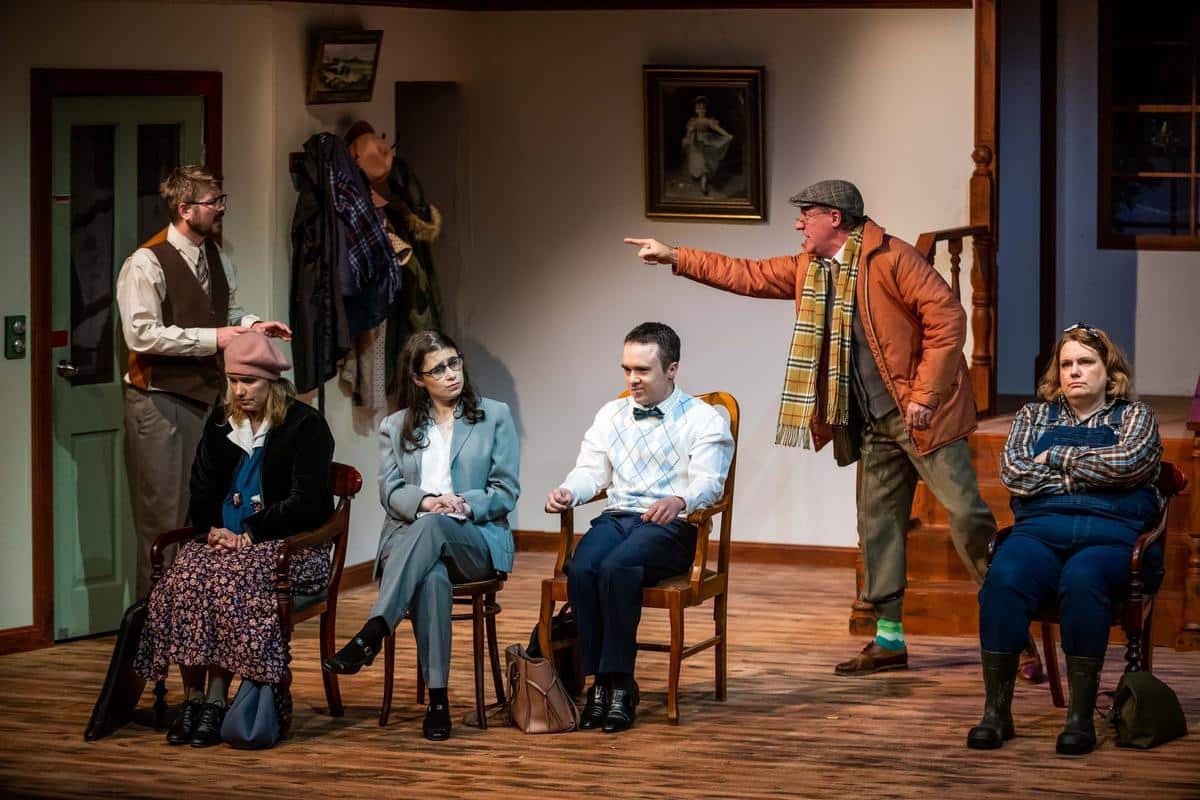
The second act swings at quite a different pace to the first and gives the ensemble more space to stretch their muscles. Anthea Brown is a comic highlight throughout, and the whole cast embodies Gina Willison’s choreography with verve. Brendan Iddles enters last in the first act, and has some of the stand-out moments in the second; his transformations are some of the most striking. Will Shipp drew out some of the most vocal audience responses, and Lauren Asten-Smith’s characters (and late second act reveal) were all some of the strongest emotionally connected moments in the scheme of the comedy of the show.
George Cartledge’s sound design is, like the set, effective and integrated, with musical moments and audio gags all landing. The storm he created was one of the key elements of the plot, and the design and delivery was seamless. The mood-setting musical moments were effective enough to situate you instantly without feeling repetitious, and Jem Rowe was particularly good at working with them to carry the audience along through all the different twists and turns of the show.
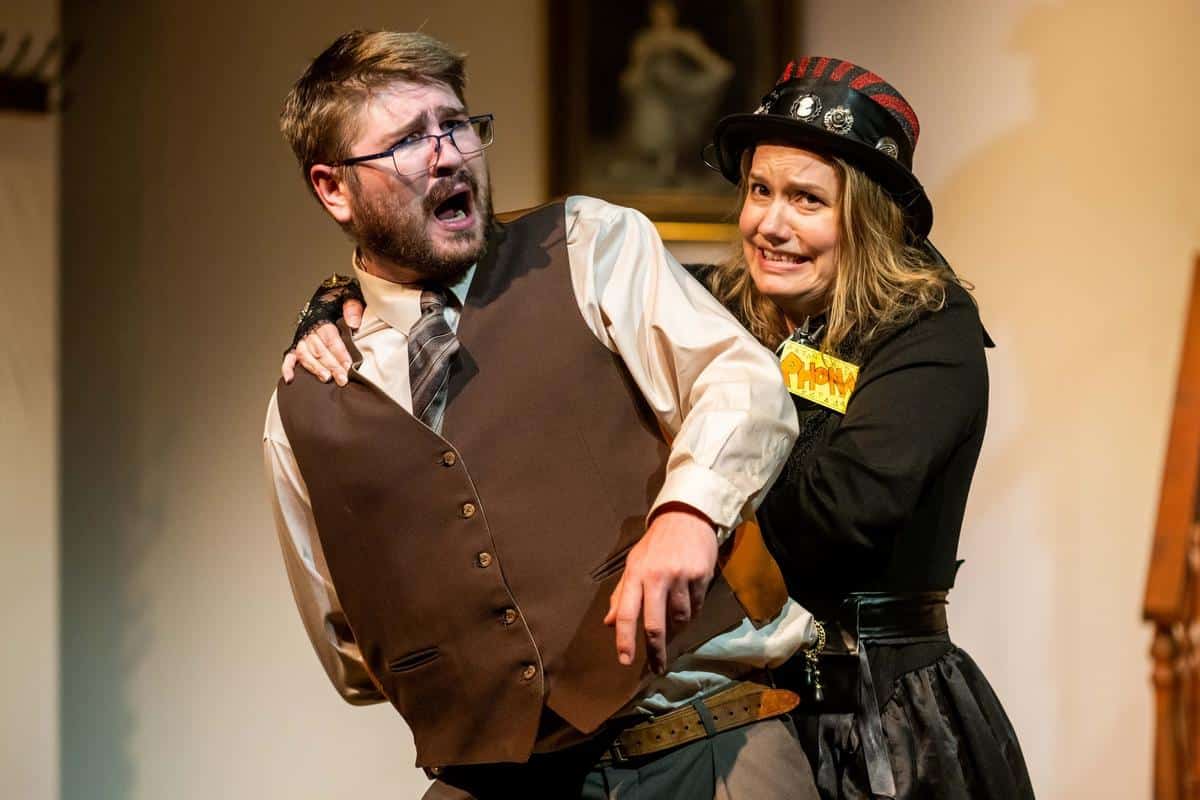
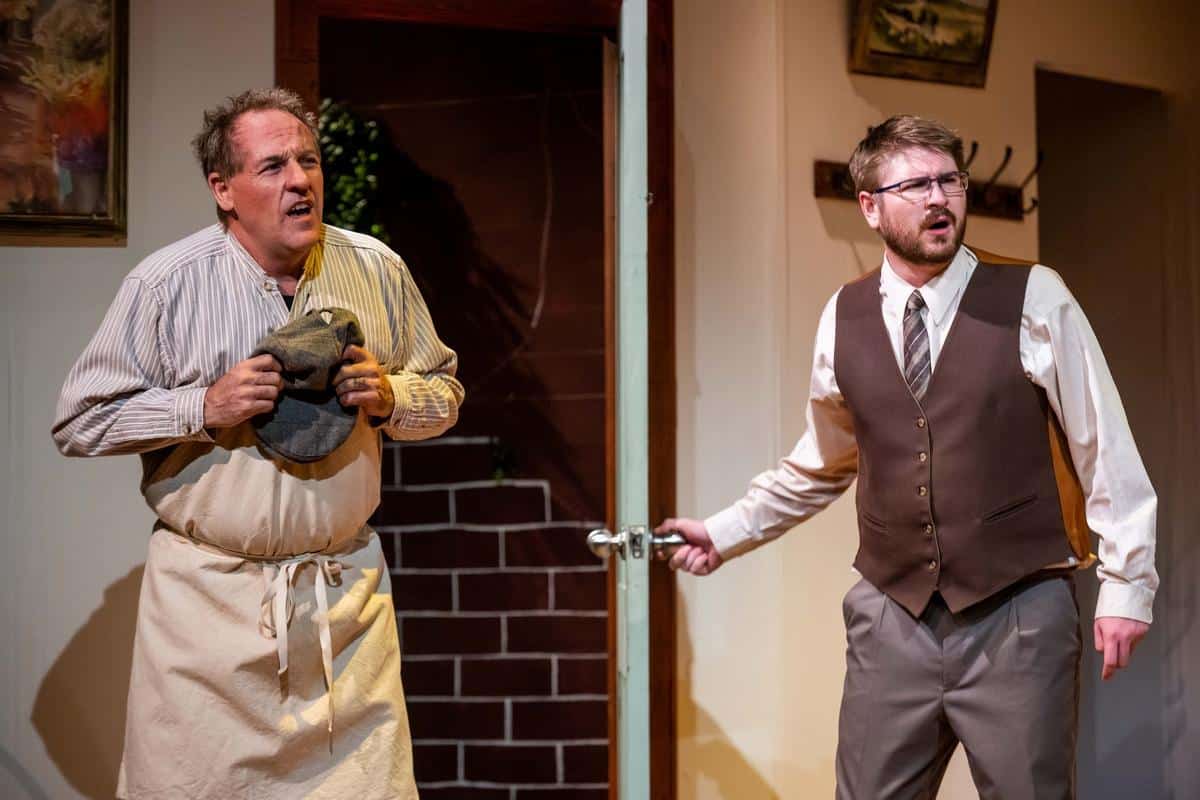
For this reviewer, the second act was the highlight, but all the threads that ran through from first-act conversations really did add to the story. There’s a lot to love and laugh along with in this show, and the cast and crew have put on a lovely production of a fun piece. There is more wordplay the more you look, and plenty of clowning and character comedy besides, so I would recommend catching this show while it’s on.
To book tickets to Improbable Fiction, please visit https://paviliontheatre.org.au/improbable-fiction/
